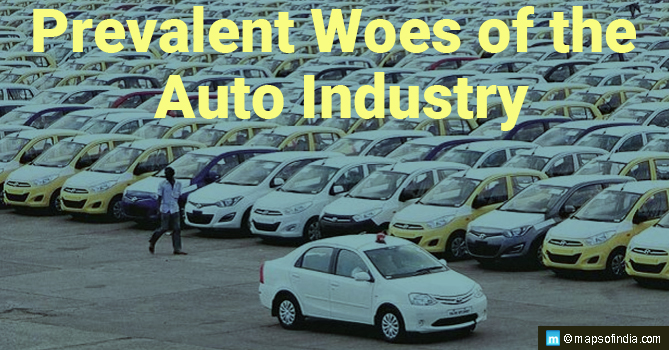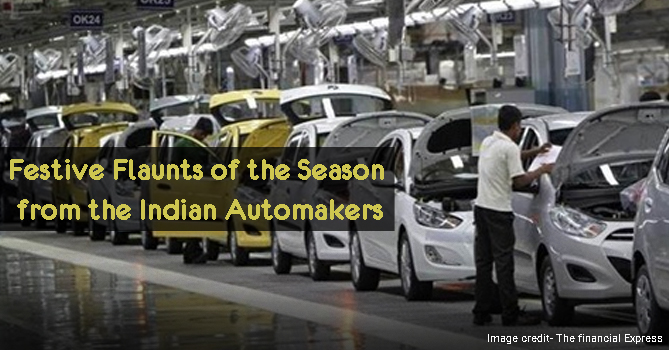
Society of Indian Automotive Manufacturers (SIAM) is urging the government to take immediate action to provide relief to the struggling automotive industry. Some of their requests include reduction in the GST rates and commencement of the scrappage policy, in light of the continued plummet in sales of passenger vehicles by thirty percent in the month of August.
Certain that it isn’t just the passenger vehicle sales but also sales of two wheelers and commercial vehicles, SIAM concludes that the measures taken by the finance ministry of India last month are not enough and more needs to be done.
President of SIAM Rajan Wadhera has shared that the industry has tried to offer all the attractive deals they can to the customers but even manufacturers cannot provide large discounts after a certain limit. This only highlights the fact that the government must consider reducing GST rates from twenty eight percent to eighteen percent, thus helping to reduce the cost of vehicles and creating demand. Mr. Wadhera also added that an integrated incentive based scrappage policy covering all segments of the Automobile industry, as promised by the FM, is the need of the hour.
With the festival season coming up, it is important that the government take some of these decisions quickly in order to give the industry a much needed boost that could help it recover and look forward to a better festival season.
Sitharaman disclosed a series of measures on August twenty third so as to improve the general prevailing attitude of the investors and to prop up the auto and banking sectors.
Among these measures were a slew of announcements on the availability of credit and reducing the cost of it, but lacked a major point. The NBFCs – non banking financial companies, though support the bulk of finance for the automobile industry, have still not been included.
The lack of trust in lending money to dealers shows the continuously retarding consumer sentiment.
Maruti Suzuki India, Hyundai Motors, Mahindra and Mahindra, Tata Motors and Honda reported a drop of double digits in their sales this August.
The country’s largest automaker Maruti’s total domestic passenger sales fell by 36.1 percent to ninety three thousand one hundred and seventy three in August, 2019, as opposed to 2018 when they were one thousand forty five hundred and eight hundred ninety five units. Hyundai motors India saw a sixteen percent fall with only thirty eight thousand two hundred and five units being sold in August 2019 as compared to the forty five thousand eight hundred and one units in 2018.
Monthly domestic sales of Honda Cars India have plummeted by fifty one percent to eight thousand two hundred ninety one units in August 2019. Seventeen thousand twenty units were sold by the firm in the same month last year.
Tata Motors sold seventeen thousand three hundred and fifty one units last year, compared to only seven thousand three hundred and sixteen units this year, showing a decline of about fifty eight percent in the company’s sales.
Mahindra and Mahindra saw a total of thirteen thousand five hundred and seven units of vehicle sales in the domestic market in August 2019. The company sales saw a dip of thirty two percent with nineteen thousand seven hundred and fifty eight units being sold in August, 2018.
Even after the continued efforts of the auto industry and the government not much has changed for the sales of passenger vehicles. Finance Minister Nirmala Sitharaman said that factors like the imminent BS6 emission norms and preference of millennials for Ola and Uber over buying cars have affected the Indian automotive industry.
The domestic sales were at a record breaking low of twenty three percent in the month of August, with only eighteen lakh twenty one thousand four hundred and ninety units being sold in this month, according to the data by SIAM. The sales of domestic passenger vehicles have now continuously been declining for ten straight months.
The government is also taking various steps to bring some cheers to the automotive sector. It was recently announced that the BSIV vehicles purchased till 31st of March, 2020, will remain in operation till the entirety of its period of registration. The implementation of this one- time registration fee rule has been put on hold until June 2020. There will be thirty percent depreciation on the vehicles bought till March 31, 2020. Various government departments will now be able to buy new vehicles as the previous ban on the purchase has been lifted. Also the government has been considering the scrappage policy and should be able to produce a statement as to how they would plan to go about it.
Finance Minister Nirmala Sitharaman, also said that the GST council will soon make a decision on the demand of automakers to consider lower tax rates. Right now automobiles will remain in the twenty eight percent tax bracket.
Related Links:
A Steady Deceleration in the Indian Automotive Sector
Effect of the 2019 Budget on the Indian Automotive Industry




